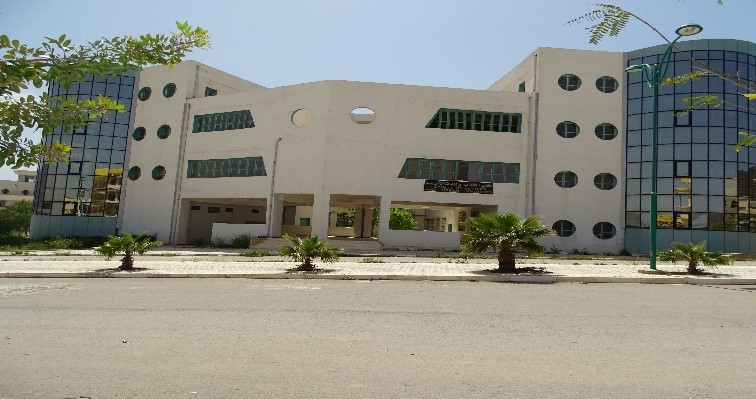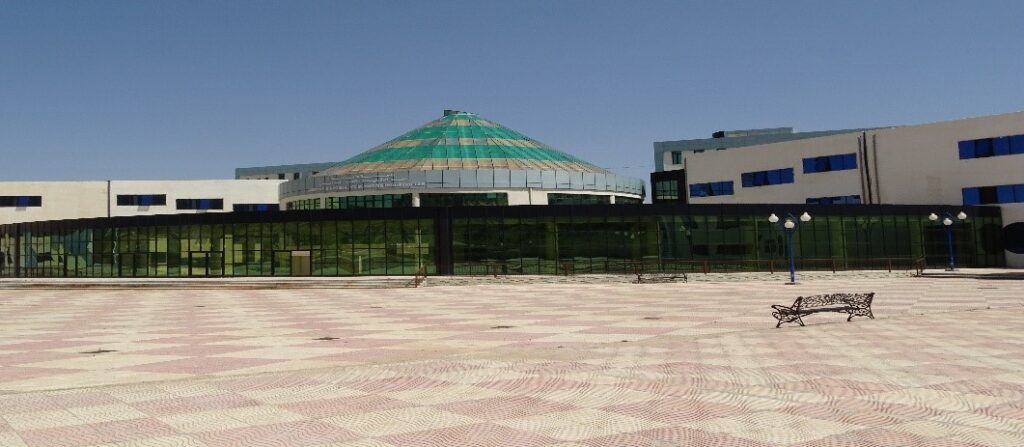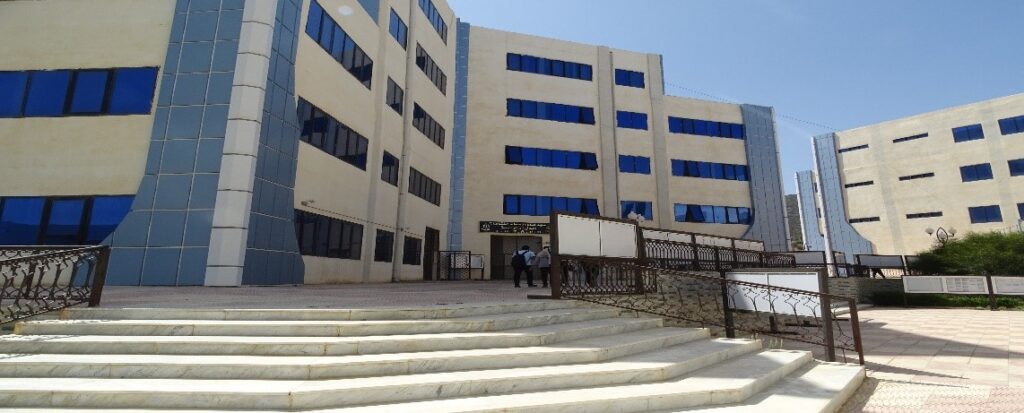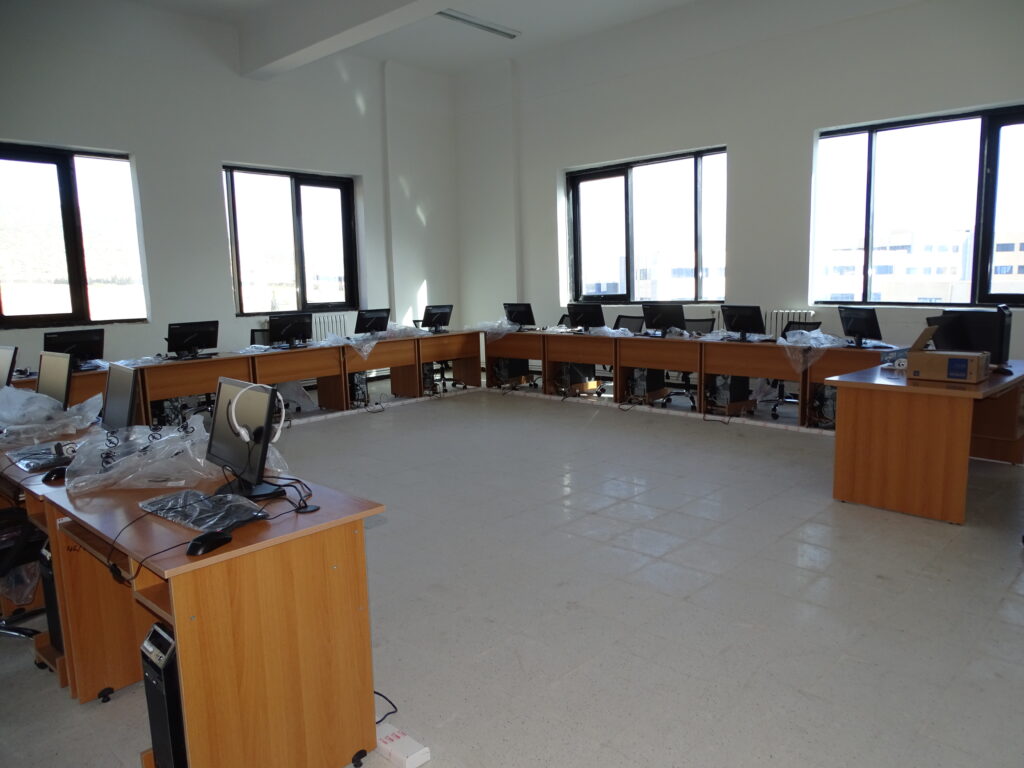Batna 2 University
Martyr Mustapha Benboulaid Comprehensive Overview

The University of Batna 2, also named after Martyr Mustapha Benboulaid, is a young and promising academic institution located in a vast area with a strategic and important position. It consists of multiple faculties and institutes offering diverse and vital specialties. The university aspires to provide the best stimulating educational environment according to international quality standards and academic programs with a strategic mindset that encourages creativity, work, and innovation.
University of Batna 2 takes great pride in bearing the name of the heroic martyr Mustapha Benboulaid, the father of the Algerian liberation revolution and its courageous leader, in recognition of his heroic sacrifices, struggle, and belief in the independence of Algeria.

The University of Batna 2 boasts a student body of approximately 25,000 students across various academic levels, including undergraduate, master’s, and doctoral programs.
Recognizing that students are the cornerstone of the university pyramid, they should strive for the highest ranks and contribute actively to the development of this academic institution. This can be achieved through scientific and pedagogical support, fostering trust and belief in students, and ensuring the graduation of batches of students who have prominent positions and a leading role in building a strong state through comprehensive training.
The university operates with a competent and qualified human team consisting of professors, administrators, and technicians, with a total number approaching two thousand. Batna 2 University‘s vision focuses on the professional development of its entire staff and employees, working as a unified team with efficiency and innovation, which ultimately benefits the entire university community.
The university operates with a competent and qualified team consisting of professors, administrators, and technicians, with an approximate total number of 2,000. The University of Batna 2’s vision focuses on the professional development of its entire staff and employees, working as a unified team with efficiency and innovation, which ultimately benefits the entire university community.
The University of Batna 2 is relatively new, established by Executive Decree No. 15-180, published in the official gazette in its issue No. 38, dated 24 Ramadan 1436 AH, corresponding to July 11, 2015. Since February 7, 2017, our university proudly carries the name of the heroic martyr Mustapha Benboulaid.
The university campus covers an estimated area of 124 hectares, including 85.85 hectares of developed built-up area and 38.15 hectares of unused land. It consists of five faculties and three institutes with various specializations, namely:
Faculty of Medicine
Faculty of Technology
Faculty of Natural and life Sciences
Faculty of Mathematics and Computer Science
Faculty of Arts and Foreign Languages
Institute of Physical Activity and Sports Siences
Institute of Prevention and Industrial Securty
Institute of Earth and Universe Sciences
The courses’ programs are distributed among Fesdis Complex and Abrouk Madani Center (CUB), as well as the Medicine and Pharmacy complexes, placing the University of Batna 2 at the heart of the economic and social life of Batna and its neighbouring provinces. The region includes economic partner institutions, executive and provincial administrations, municipal councils, and others.
In this regard, the University of Batna 2 is ready to continue developing its scientific and technological training projects. It recognizes that the qualitative shift in training must begin at the pedagogical level and prepare all necessary conditions for it to rise to the ranks of prestigious institutions in higher education and scientific research. It aims to produce a high scientific and educational competence level to face current and future challenges.
Rectorate’s Office
The university’s Office for Higher Education in the first and second cycles, continuing education, certificates, and progressive higher education is responsible for the following:
- Monitoring matters related to the progress of education and training provided by the university.
- Ensuring the alignment of training programs offered by faculties and institutes with the university’s development plan.
- Ensuring compliance with the effective regulations in the areas of enrollment, re-enrollment, knowledge monitoring, and student transfers.
- Monitoring e-learning activities provided by the university and developing continuous training activities.
Rectorate’s Office for Higher Education in the Third Cycle, University Habilitation, Scientific Research, and Postgraduate Training
The Rectorate’s Office for Higher Education in the Third Cycle, University Habilitation, Scientific Research, and Postgraduate Training is responsible for the following tasks:
- Monitoring matters related to post-graduate and specialized education, academic habilitation, and ensuring compliance with the regulations in this field.
- Monitoring research activities in research units and laboratories and preparing a summary in coordination with colleges and institutes.
- Engaging in any activity that enhances the results of research.
- Ensuring the proper functioning of the University’s Scientific Council and maintaining its archives.
- Collecting and disseminating information related to research activities carried out by the university.
Rectorate’s Office for Higher Education in the First and Second Cycles, Continuous Education, Diplomas, and Graduate Training
The university’s Rectorate’s Office for Higher Education in the First and Second Cycles, Continuous Education, Diplomas, and Graduate Training is responsible for the following:
- Monitoring matters related to the progress of education and training provided by the university.
- Ensuring the alignment of training programs offered by faculties and institutes with the university’s development plan.
- Ensuring the functioning of the University Scientific Council and preserving its archive.
- Collecting and disseminating information related to research activities carried out by the university.
Rectorate’s Office for Development, Foresight and Guidance
The Rectorate’s Office for Development, Foresight and Guidance is responsible for the following:
- Collecting the necessary elements to prepare the university’s development plans.
- Conducting foresight studies on student enrollment expectations at the university and proposing actions for their care, especially in the field of pedagogical and administrative supervision.
- Maintaining the university’s statistical database and ensuring its regular updating.
- Preparing informational materials on the educational path offered by the university through its professional channels.
- Monitoring construction programs and ensuring the implementation of university equipment programs in coordination with relevant departments and administrative bodies.
Rectorate’s Office for External Relations and Cooperation
The Rectorate’s Office for External Relations and Cooperation serves as the main hub for establishing connections with various national and international universities, as well as national and international scientific centres. The office also works on disseminating the ideas, aspirations, opinions, and plans of the university, as well as editing and publishing news reports. It aims to actively participate in national and international seminars and conferences through twinning and bilateral agreements and memoranda of understanding.
Colleges and institutes of the University of Batna 2 offer a variety of disciplines with different scientific and technical branches.
1- Faculty of Technology
Being among the oldest and most extensive colleges at Batna 2 University, the Faculty of Technology is also the largest in terms of departments and majors, offering a rich and diverse education in various technical fields including mechanical engineering, electronics, electrical technology, industrial and civil engineering, and irrigation.


2- Faculty of Medicine
Distinguished by its strategic geographical location adjacent to the university hospital, the Faculty of Medicine offers education at both undergraduate and postgraduate levels in medicine and pharmacy, covering a wide range of medical, surgical, and biological specialties. In addition to its educational structures, the medical department houses the only national-level medical simulation center, an essential pedagogical resource that ensures comprehensive training for medical students.

3- Faculty of Mathematics and Computer Science
This faculty houses various specializations with a focus on automation and information technology. It provides training in artificial intelligence, multimedia, information systems, and software engineering and its development.
4- Faculty of Natural and Life Sciences
The Faculty of Natural and Life Sciences is a scientific space that offers both theoretical and practical training in biology, biochemistry, and the environment.
5- Faculty of Arts and Foreign Languages
The Departments of English and French Languages and Translation offer a wide range of courses in linguistics, education, culture, and civilization.

1- Institute of Prevention and Industrial Safety
This institute offers specialized training in risk analysis and management, environmental protection from industrial pollution risks, workplace health and safety, and internal security for institutions. It is the only one of its kind at the national level and holds a testimony of excellence.

2- Institute of Physical Education and Sports Sciences
This institute primarily focuses on physical and sports activities, exercise science, and specializations in individual and team sports.
3- Institute of Earth and Universe Sciences:
The studies and training at this institute revolve around the formation of Earth, its relationship with the cosmos, and its changes. This is accomplished through the fields of geography, regional planning, and geology, with the goal of valuing and protecting natural resources, managing major hazards for competitive regions, and sustainable development, as well as expanding the knowledge base in urban planning and responsible governance.


The Central Library of the University of Batna 2 is considered a significant scientific hub, rich with a wide variety of references and books. It offers extensive options in the fields and specializations of technology, medicine, biology, geology, industrial safety, foreign languages, and sports. Its shelves are filled with an infinite number of dictionaries, encyclopedias, theses, dissertations, and scientific journals. The vision of the Central Library is to enrich, utilize, and preserve documentary heritage by making optimal use of documentary information across all available media. It aspires to transform the university into a center of excellence and a creative environment that allows for the enhancement of information skills and the promotion of the general culture of the university community.
Intensive Language Learning (Course) Center
The Intensive Language Learning Center is one of the educational structures that supports the university. It offers a comprehensive setup of departments and equipped labs with interactive smartboards and audio recording equipment to improve pronunciation. This center is open to all students of the university, offering intensive lessons to enhance students’ language proficiency in languages such as English, French, Spanish, German, Italian, and Turkish.

Accommodation
There are eight housing facilities with a capacity of 14,000 beds, which equals 7,000 rooms.
Transportation
The main Services Directorate provides 29 buses connecting the Fesdis University Campus to Abrouk Madani University Center, 33 buses for the route connecting the Fesdis University Campus to the University of Batna 1, and 12 buses linking the Sidi El Houas University Campus in Barika to the city center. In total, there are 74 buses.
Financial Benefits
The university grants 9,245 benefits to students at various academic levels, including bachelor's, master's, and doctoral degrees.
THE UNIVERSITY OF BATNA 2 (UB2) IS A NON-PROFIT ALGERIAN PUBLIC COLLEGE LOCATED IN FESDIS,WILAYA OF BATNA IN ALGERIA. IT WAS FOUNDED IN 1977
